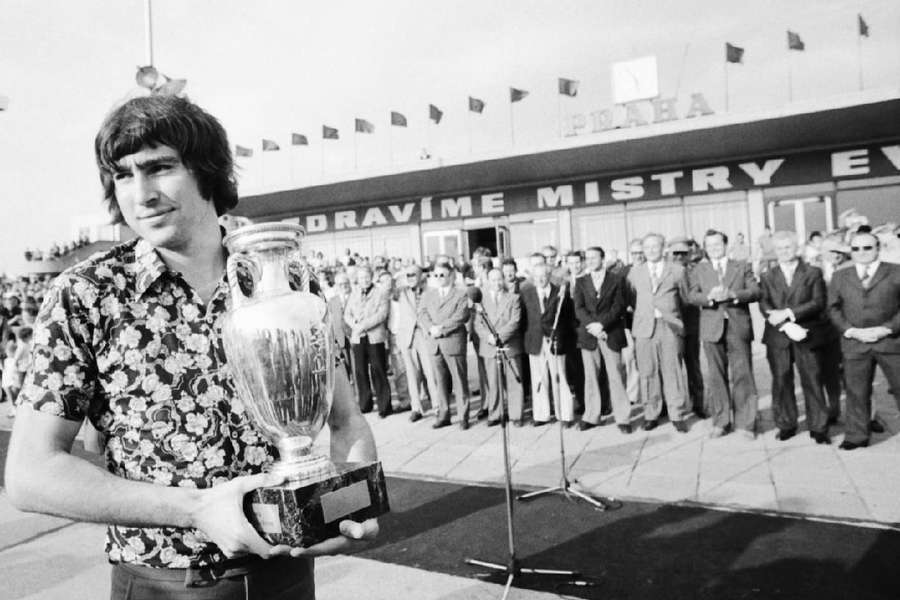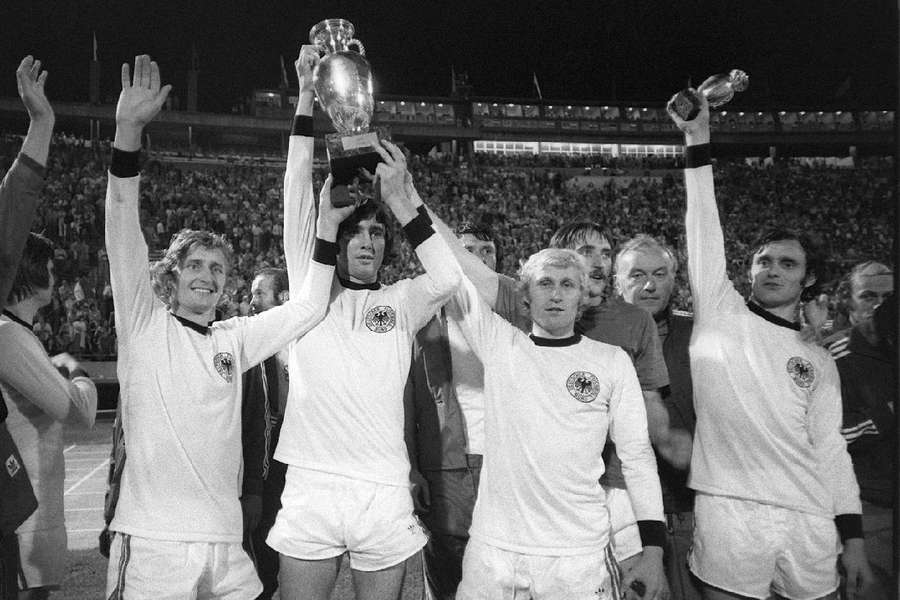For the first time in history, a final Euros tournament was held behind the 'Iron Curtain' in 1976, and the Communist bloc countries were desperate to prove their supremacy against the West.
The preliminary group format was retained, with the eight winners going on to play the quarter-finals in a round-robin format before a mini-final tournament with the top four nations.
The final tournament hosted by Yugoslavia was full of drama, with all matches going to extra time and the final even requiring a penalty shootout, as we shall see below.
Czechoslovakia's captain Anton Ondrus scored the first goal of the semi-final after 19 minutes against the Netherlands, but he also scored an own goal with just over a quarter of an hour to go, the first own goal ever scored at the Euros.
With a Slovak-dominated team, the Czechoslovakia national team would score twice in extra time to set up a final with defending champions West Germany, who in turn needed the extra two halves to get past the hosts, with Dieter Muller being the Mannschaft's hero.
A final to remember
In the final played on June 20th, 1976 in Belgrade, Czechoslovakia took a two-goal lead after 25 minutes through Jan Svehlik and Dobias but the Germans replied quickly through Muller in the 28th to take the match into extra time thanks to a late goal by Holzenbein. If VAR had existed, the goal would most likely have been disallowed due to an elbow to the face of Czechoslovak goalkeeper Ivo Viktor.
Ranked 23rd in the 1969 Golden Ball rankings, Viktor was one of the best goalkeepers in the world in 1976, and his sensational saves against the Dutch and then the West Germans contributed greatly to the Czechoslovaks' victory, giving him third place in the Ballon d'Or rankings that year.
The only thing he couldn't do was save one of the penalty kicks in the final, but as it turned out later, he didn't even have to.
For the first time in history, UEFA accepted that a match would be decided with a "penalty shootout" - a decision made just hours before the whistle.
The original plan was that in the event of a draw, the match would be replayed two days later, but at the insistence of the Germans, a penalty shootout was introduced and the decision was communicated to the players in the dressing room before the match.
Uli Hoeness missed the Germans' fourth kick, hitting it well over the goal, and Czechoslovakia could have won the trophy if they converted the next one. The responsibility fell to Antonin Panenka, who scored with a stunning finish that would go down in football history with his name on it.

Surely, the 1976 tournament was the most spectacular of all the editions up to that point and was the engine that pushed the competition towards a perpetual transformation into what it is today.
"World Soccer always tries to keep its feet on the ground," wrote the reputable World Soccer magazine after the Belgrade final.
"We avoid the mass hysteria that inevitably accompanies success. We try to be objective in our criticism. So when World Soccer starts sharing superlatives, it really means something.
"The final stages of the European Championship are the cause of our delight - a week, we believe, in which footballers and football rediscovered what the game is all about. All four nations offered a commitment to goals that have been sadly lacking for too long at international level."
Team of the tournament:
Goalkeeper: Ivo Viktor (Czechoslovakia)
Fullbacks: Anton Ondrus (Czechoslovakia), Jan Pivarnik (Czechoslovakia), Ruud Krol (Netherlands), Franz Beckenbauer (GER)
Midfielders: Antonin Panenka (Czechoslovakia), Jaroslav Pollak (Czechoslovakia), Rainer Bonhof (GER), Dragan Dzajic (Yugoslavia)
Forwards: Zdenek Nehoda (Czechoslovakia), Dieter Muller (GER)




